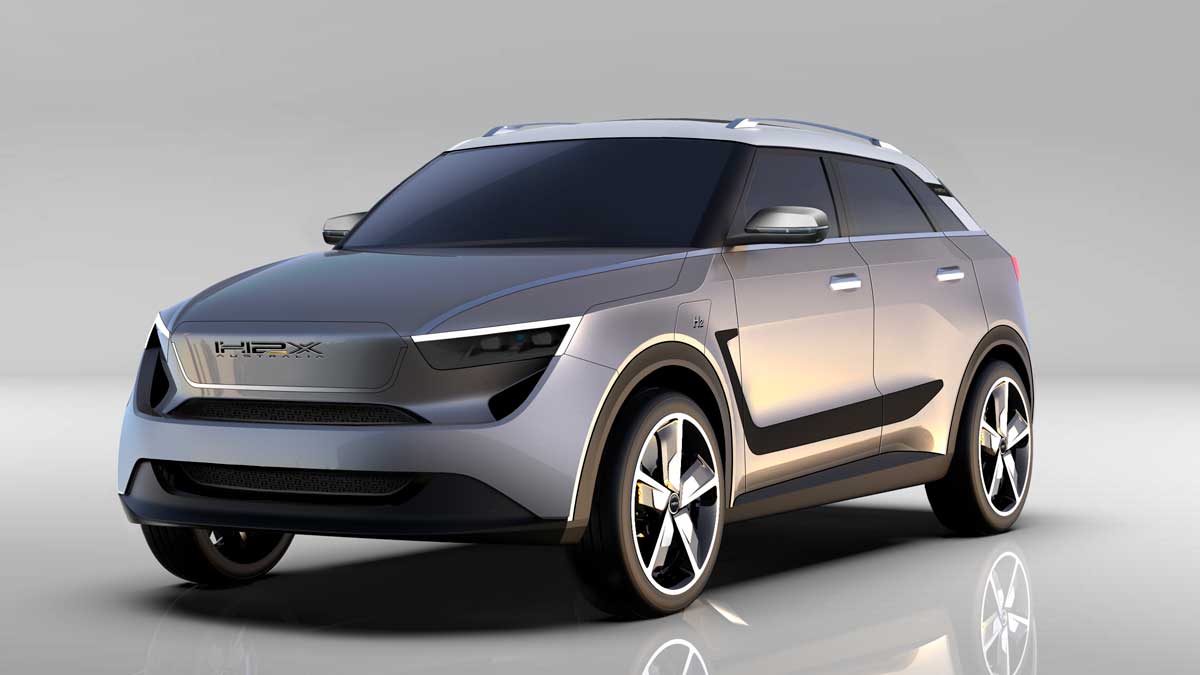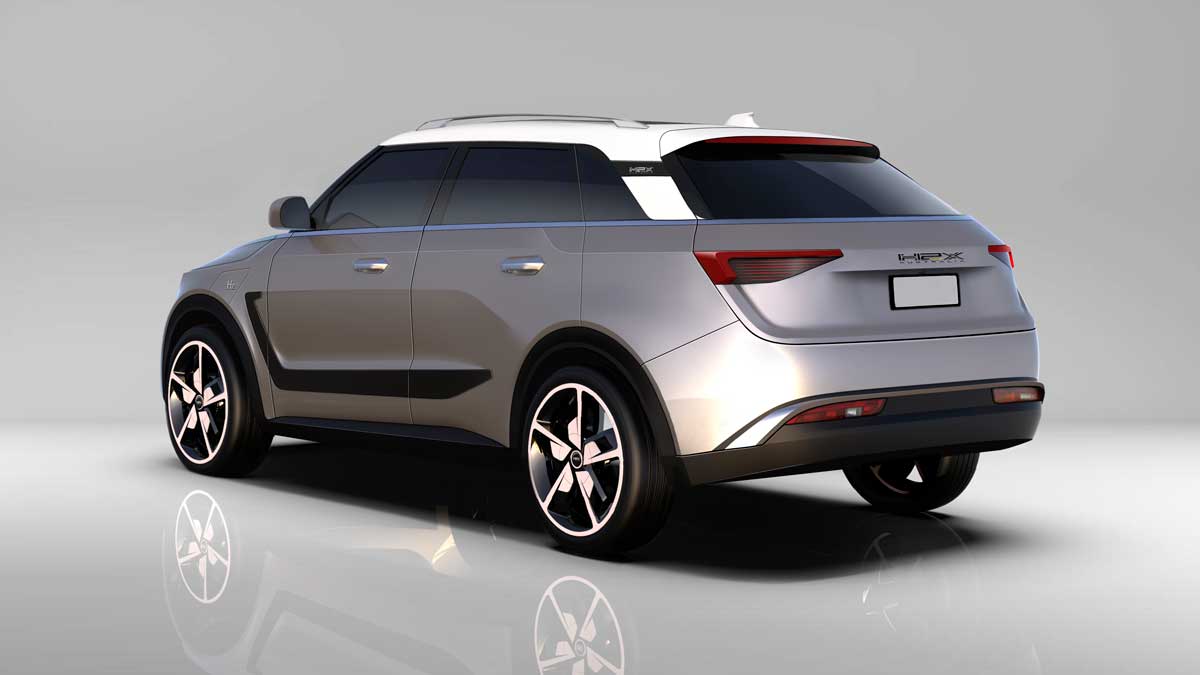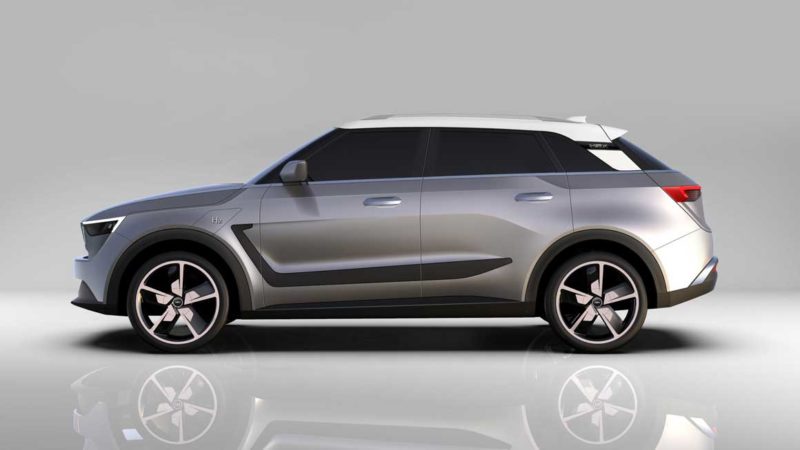A new company based in Port Kembla, NSW, hopes to revive the car manufacturing industry in Australia, and create up to 5,000 new jobs, through the production of a new hydrogen-fuelled SUV called Snowy in 2022.
The company, named H2X Australia, has plans to produce a range of hydrogen fuel cell vehicles (FCEVs) including everything from people movers to heavy duty vehicles such as tractors and even trains.
Hydrogen as a truly clean transport option has some questions around it regarding emissions from its energy intensive production (it requires a very high share of clean energy to ensure the fuel is low emissions) and the high investment required for refuelling infrastructure.
Still, other companies are ploughing ahead. This week, US-based hydrogen vehicle maker Nikola surpassed US car giant Ford on Tuesday in market value and will open reservations for its Badger SUV in late June. It has pegged Australia as a first market. And H2X investors include companies involved in the renewables industry.
The H2X team is headed by CEO Brendan Norman, who has held executive positions in the past with VW in Saudi Arabia, Shanghai and Singapore, Audi in Japan and South Korea, and who has worked with Grove Hydrogen and Wales-based hydrogen car maker Riversimple over the past decade.
“We have substantial funding already to develop vehicles and get first the couple of vehicles into the market,” Norman told The Driven, in reference to the planned SUV in 2022, and the heavier vehicles also in the pipeline. These include platforms that would accommodate two fuel cell units with a 300-550 kw power output.
Norman is sad to see the end of Australia’s car manufacturing industry, and believes it’s time to remind the world of what it can do.
“Today we launch our company which not only demonstrates the advanced technology and engineering capabilities of Australia in the clean energy arena but also provides a real clean alternative in terms of transportation,” he said in a statement.
“With the development of many green energy projects in Australia at the moment, we have a unique opportunity to bring a significant manufacturing operation back to the country.”

The company is also talking with industry partners to ensure the development of refueling infrastructure, a long recognised ” chicken and egg” situation for the industry.
“We’re already discussing how we lay that out, but we need vehicles to be there to be able to use the hydrogen,” Norman told The Driven. “What we’ve done is come up with concept that we know where the customers are because they’re talking to us.”
The plan is for 5 and 15 refueling stations to be installed by the middle of 2021 in locations that would serve the back-to-base nature of H2X’s commercial customers. Then, H2X wants to work on a plan to get stations into cities with a view for private hydrogen vehicle use.
With regards to the planned Snowy SUV, Norman says that its price will be ” a competitive offer to an electric vehicle in the segment of prestige small SUV,” adding that the premium automotive of the team’s background will underpin this.
Driving range for the Snowy SUV has been estimated by H2X at 650km. The H2X platform will be based around a hybrid fuel cell and ultra-capacitor platform, which Norman says will enable superior regenerative capabilities (although supercaps cannot hold energy for long, they can accept energy faster than lithium-ion batteries allowing for better recuperation of braking energy).
H2X will base itself in Port Kembla south of Sydney, which has strong links to a growing network of clean hydrogen projects. It currently has 70 staff employed with another 100 jobs planned by the end of 2020.
Backing H2X are pre-mix concrete company Elvin Group and Denzo Pty Ltd, a company linked to solar farm projects in Queensland.
According to Denzo managing director Ken Mathews, this company has energy and hydrogen projects in multiple locations in Port Bundaberg, Port Kembla, and in Dubbo in the NSW Renewable Energy Zone.
“Together with H2X and others including ANT Renewables in Victoria, we are establishing clean energy and clean transportation to put Australia on the map as world leaders in terms of a cleaner future,” said Mathews in a statement on the H2X website.


Bridie Schmidt is associate editor for The Driven, sister site of Renew Economy. She has been writing about electric vehicles since 2018, and has a keen interest in the role that zero-emissions transport has to play in sustainability. She has participated in podcasts such as Download This Show with Marc Fennell and Shirtloads of Science with Karl Kruszelnicki and is co-organiser of the Northern Rivers Electric Vehicle Forum. Bridie also owns a Tesla Model Y and has it available for hire on evee.com.au.

